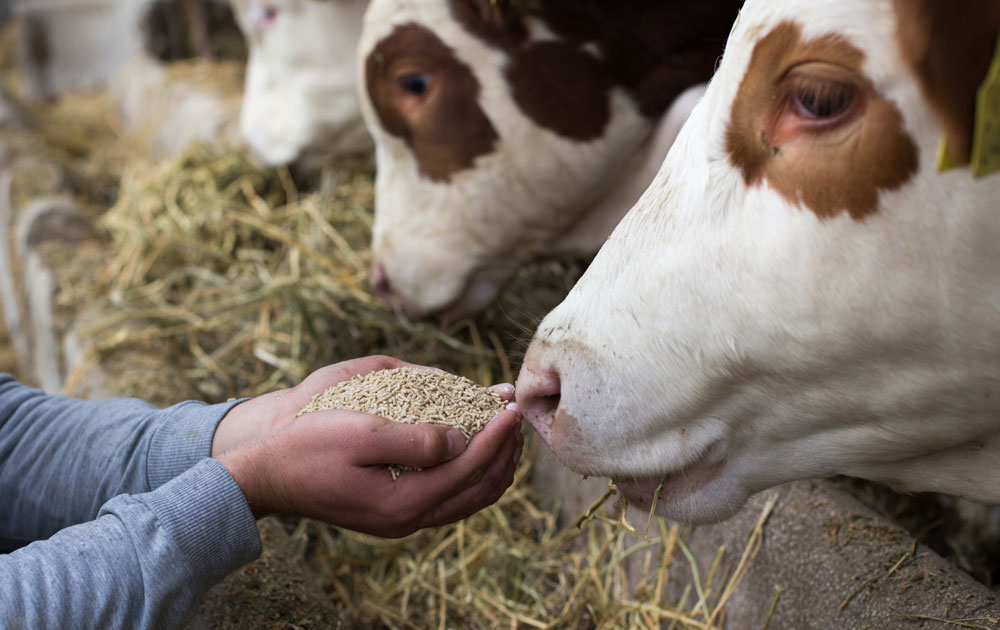
Reusing agricultural byproducts in animal feed can save significant land and water resources, according to a new collaborative study by researchers from UC Berkeley, Politecnico di Milano, and the University of Milan.
The research shows that up to 27.8 million hectares of soil and 137.8 cubic kilometers of irrigation and rainwater can be conserved by replacing 11 to 16 percent of traditional cereal-based animal feeds with byproducts created from processing cereals and sugar, such as cereal bran, sugar beet pulp, molasses, distillery residues, and citrus pulp. The study was co-authored by Environmental Science, Policy, and Management professor Paolo D’Odorico, and was featured on the cover of the December issue of Nature Food.
While animal-based foods like beef and chicken comprise 16 percent of the global food supply and are an important source of protein for human diets, they are incredibly resource-intensive. Approximately one-third of global agricultural resources and three-quarters of all agricultural land are used to grow feed or raise livestock, according to the study. Meeting that demand could increase competition, either directly or indirectly, with agricultural production of plant-based foods.
The authors show that utilizing alternative ingredients in animal diets could cut down on potential competition, increase sustainability, and reduce the overall environmental impact of the global food system.
Read the full study in Nature Food.
